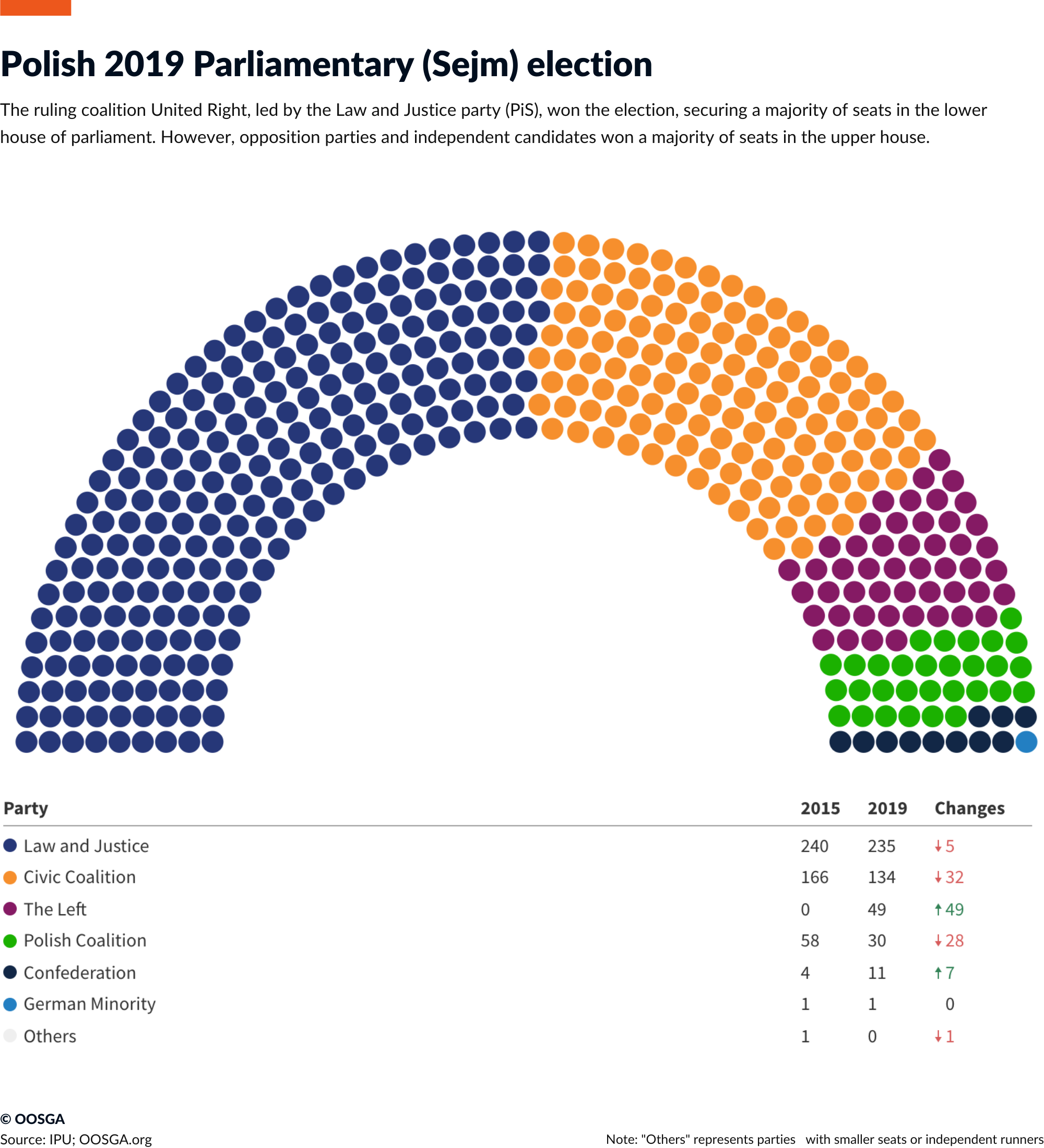Connect With Authors
*Your message will be sent straight to the team/individual responsible for the article.
After World War II, Poland was under a Soviet-backed communist regime until the Solidarity trade-union movement emerged in 1980, leading to partly free elections in 1989 and the formation of the first non-communist government in Eastern Europe. Since then, governments composed of parties descended from the Solidarity movement have alternated in power with coalitions led by the former communists, renamed the Democratic Left Alliance. The conservative-nationalist Law and Justice party (PiS) or the liberal, center-right Civic Platform have won elections since 2005, with PiS winning the 2019 parliamentary election and the 2020 presidential election.
Poland is a parliamentary republic with a two-house parliament consisting of the Sejm (lower house) and Senate (upper house), and a directly elected president who can veto legislation. A three-fifths majority in the Sejm is needed to override a presidential veto.
The Law and Justice party (PiS) prioritizes social welfare, economic nationalism, and reducing inequality. Since taking office in 2015, PiS has focused on pro-natalist policies, increasing welfare and the minimum wage, and lowering the pension age. The government is pursuing a “repolonization” program to repatriate ownership of strategic or politically significant industries by fostering their acquisition through state-owned enterprises. The state maintains a significant presence in the economy, with approximately half of the 20 largest companies by market capitalization being state-controlled.
The government’s top priority going into 2023 is to manage the cost-of-living crisis, with a series of support packages aimed at reducing the impact of high energy prices on households and businesses. The most recent measures include one-time payments for heating, price caps for gas, central heating, hot water, and electricity, as well as subsidies to enterprises. The government expects energy companies to have minimal profits in 2023, with taxpayers sharing the fiscal burden. Poland has invested in new LNG facilities and accelerated gas provision from Norway to reduce energy dependence on Russia. However, the country is expected to increase coal production to reduce reliance on Russian gas, despite the government’s climate pledges.
Poland is also shouldering the burden of a refugee crisis, with an estimated 1.5 million Ukrainian refugees having settled in the country. A new law allows refugees to stay for up to three years with access to healthcare, education, and social services. The government and local authorities spent zł 15.9bn in 2022 alone to support Ukrainian refugees, according to the Polish Economic Institute.
-20.77 Billion
- %
-3.7 %
49.1 %
The ruling coalition United Right, led by the Law and Justice party (PiS), won the election, securing a majority of seats in the lower house of parliament. However, opposition parties and independent candidates won a majority of seats in the upper house. Despite this, the ruling coalition’s majority in the lower house gives them the power to enact legislation and form the government.

-
21
-
33
4.5 $
12.02 $
1390 $
3.0927 %